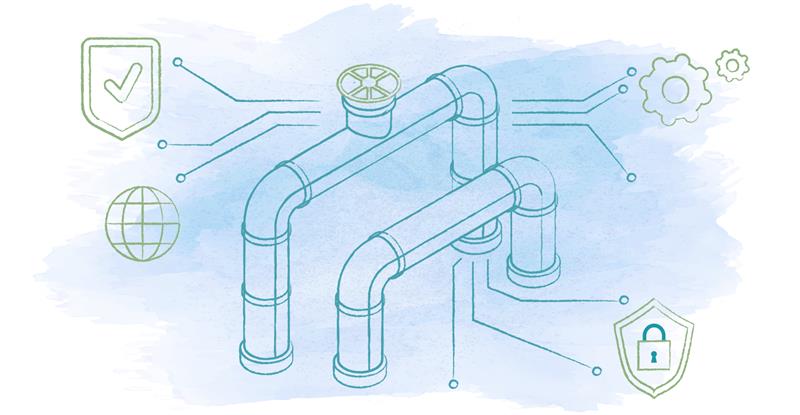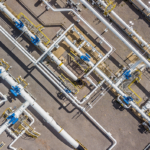Pipeline safety is crucial for multiple reasons, as failures can lead to significant consequences across various areas.
Why does this matter?
🌳 Environmental Impact
A lack of safety measures can result in leaks and ruptures, jeopardizing local ecosystems and water systems. Additionally, repairs often require digging up the ground, further disrupting the environment.
💡 Reliability of Energy Supply
Pipelines are essential for the consistent delivery of gas and other energy sources. Every leak leads to a shutdown, disrupting the energy supply and affecting daily life. Ensuring pipeline safety is crucial for maintaining a reliable flow of energy.
🤝 Company Reputation
The integrity of pipelines directly affects a company’s reputation and the public’s trust. Frequent incidents can lead to negative perceptions, damaging relationships with customers and stakeholders.
Effective Leak Detection and Pipeline Safety Solutions
Detecting leaks in pipelines is essential for ensuring safety and efficiency. Here’s how we approach leak detection and the overall maintenance of pipeline systems.

Leak Detection Techniques
- Simulated Leaks: We conduct tests using simulated leaks to evaluate the effectiveness of leak detection software. By introducing fake leaks, we can confirm whether the system triggers alarms and notifications as intended.
- Backend Improvements: Our team enhances the backend code of the detection software, making it more efficient and easier to maintain, which improves its accuracy.
- Operator Training Models: We develop training programs for pipeline operators. These models simulate various scenarios—like leaks and ruptures—allowing operators to practice emergency responses. They receive feedback and grades, ensuring they are well-prepared for safe operations.
- Column Separation Software Maintenance: This software distinguishes between vapor formations and actual leaks. We assist in its maintenance and testing to ensure accurate leak detection.
- SCADA Upgrades: Keeping SCADA systems up to date is crucial for pipeline safety. We help clients upgrade outdated systems to ensure proper operation and monitoring.
- Computational Pipeline Monitoring: We create simulated pipelines that mimic real conditions, helping to gather data for leak detection.
- Additional methods include External Leak Detection (ELD) using infrared cameras, flyovers, and fiber optic cables to acoustically monitor for leaks.
Hydraulic Studies and Safety Mitigations

When modeling pipelines, we run simulations to analyze transient and steady-state conditions, providing clients with tailored safety recommendations.
In some cases we recommend installing relief lines that activate when pressure exceeds safe levels, allowing excess fluid to be drained and preventing potential ruptures.
In other cases, we give recommendations on optimal flow rates and pressures and suggest new control valves to enhance safety.
Let’s Not Forget About Cybersecurity
In today’s digital age, effective cybersecurity is critical for the safe and efficient operation of pipeline systems. These systems rely heavily on softwares for their management and control. In many ways, the software acts as the brain of the pipeline, making its protection crucial.

Protecting Against Cyber Threats
One of the significant risks faced by pipeline operators is the threat of cyberattacks. Hackers can potentially shut down servers, leading to disruptions that can have serious consequences for operations and safety. Implementing practices such as regular password rotations and three-factor authentication can significantly enhance security.
Access Control is Key
Another crucial aspect of cybersecurity is limiting access to the software and systems. By establishing strict access controls, companies can reduce the risk of internal breaches and ensure that only those with a legitimate need can have access to sensitive data and applications.
Importance of Regular Updates
Keeping software and applications up to date is another vital component of cybersecurity. After updating servers or making significant changes to the system, it’s essential to verify that all critical applications remain compatible with the new patches. This process usually involves conducting multiple tests to ensure seamless functionality.
Cybersecurity Measures
Cybersecurity is as critical as physical safety in pipeline operations. We support clients in several ways:
- Operating System and Application Patching: With thousands of computers and software assets, consistent updates are vital. We coordinate updates while ensuring effective communication across teams.
- Testing Leak Detection Applications: Our testing covers user interfaces, alarms, logins, databases, and data flow to ensure proper functionality and security.
- Preventing Cyber Threats: Recent incidents of ransomware attacks on pipeline systems highlight the need for strong cybersecurity. We help clients safeguard their digital assets, ensuring that both software and physical equipment operate effectively.
Through our comprehensive approach to leak detection, cybersecurity, and hydraulic studies, we help clients identify potential safety issues and implement effective solutions to prevent accidents and ensure safe pipeline operations.


